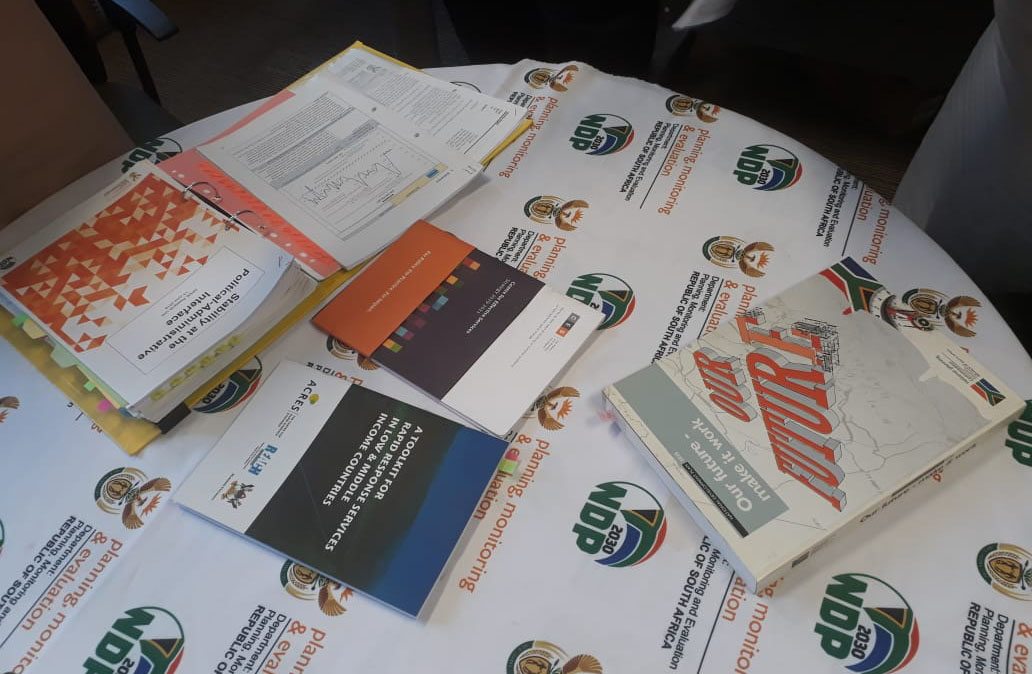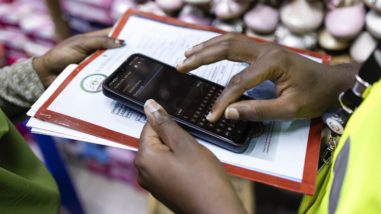Can African think tanks help strengthen government use of data and evidence? We think so.

With so much excitement around Africa Evidence Week, a cross-country virtual and live bonanza of Evidence Informed Decision-making (#EIDM) hosted by the Africa Evidence Network and dozens of partners, I couldn’t help but jump in.
Through the outpouring of videos, webinars, events, blogs and #AfricaEvidenceWeek tweets we have met emerging evidence leaders; learned about evidence gap maps, evidence syntheses and research repositories; seen evidence champions in action in Ghana and Nigeria; and heard about specific cases of evidence informing policy in water and sanitation, education and health.
To this wealth of information I add one question—can African policy research centers help change behavior within governments so officials use evidence in a routine, ongoing way?
This is a question that a set of African policy research institutions has set out to answer, not only through research, but through practice.
Many organizations generating data and evidence focus primarily on finding better ways to get their own evidence used in specific cases. For example, a health policy researcher that tries to influence a specific program or policy at the Ministry of Health in a given country. Far fewer put themselves in the shoes of the ministry or local government officials and ask what is standing in their way of using evidence in their decisions.
Through a call for proposals last year, we are delighted to have found courageous and creative organizations that are taking this perspective. Each in its own way, these organizations are all pursuing the goal of bolstering the capacity, will and institutional tools and systems that governments use to apply data and evidence to their decision-making. We could consider this working at a more “systemic” or “institutional” level. Some might think of this as “cultivating the demand side” of evidence use, or “inculcating a culture of evidence use.”
From 81 applications across East and West Africa, we selected 8 institutions with particularly interesting ideas for working at a more systemic level. The eight grantee institutions are:
- Actions pour l’Environnement et le Développement Durable (ACED) in Benin
- African Centre for Parliamentary Affairs and partners (ACEPA) in Ghana working in collaboration with INASP and the Ghana Statistical Service
- African Institute for Development Policy (AFIDEP) working in collaboration with the African Academy of Science
- African Population and Health Research Center (APHRC) working in collaboration with AFIDEP
- Ghana Center for Democratic Development (CDD Ghana)
- Ghana Institute of Management and Public Administration (GIMPA) working in collaboration with UC Berkeley Center for Effective Global Action (CEGA)
- The Institute for Economic Affairs (IEA) in Kenya working in collaboration with the Urban Institute in the U.S.
- The Ugandan National Academy of Sciences (UNAS)
Some are explicitly focused on strengthening capacity for use of evidence. For example, the African Center for Parliamentary Affairs in Accra is partnering with the Ghana Statistical Service and INASP to help parliamentary committees and staff access and use the data they need to better execute their oversight and representative functions.
Others are working with government partners to bolster the systems and tools built into agencies to guide decision-making. For example, the Institute for Economic Affairs in Kenya, in partnership with the Urban Institute, is working with the Kenyan Commission on Revenue Allocation to develop new revenue forecasting and expenditure models and to integrate them into budget cycle within the Authority and parliament, with a particular eye toward improving how decisions are made on revenue allocation to county governments. The African Population and Health Research Center and African Institute for Development Policy are partnering with officials at the district level in Kenya to strengthen capacity and use of integrated national and subnational data systems.
Others will work on strengthening ongoing interaction among scholars and policymakers in an effort to make evidence use more routine. For example, the Ugandan Academy of Science will use its consensus study process to involve policymakers in knowledge co-creation and use. CDD Ghana will pilot and test approaches to enhance both the capacity and incentives of policy actors to use data and evidence, in part by nurturing ongoing communities of evidence champions and practitioners at the district and national level.
When it comes to affecting change at this more systemic, institutional level, what is truly achievable over the course of two-year grant terms, or even over five years? How will we know if this is working? These are the kinds of questions we worked with our grantee partners on during the proposal process. We hope to go one level deeper on these questions as a group when this cohort of organizations comes together in early 2020, along with several aligned grantees such as the Utafiti Sera Program at the Partnership for African Social and Governance Research (PASGR) in Kenya and the Initiative Prospective Agricole et Rurale (IPAR) in Senegal.
We’ll all learn from each other. For example, the African Center for Parliamentary Affairs and INASP are already developing an adaptive monitoring framework that acknowledges that progress isn’t linear and they’ll have to “think and act politically.” Actions pour l’Environnement et le Développement Durable has already articulated deep learning questions such as “what are the key factors and drivers for effective evidence-informed policymaking at local government level?” and “how can we reinforce the linkages between evidence-informed policymaking and development results?”
With this cohort we hope to learn a lot more about how non-governmental organizations can influence systemic, institutional change in how governments make decisions. We hope to nurture a likeminded and diverse community of African organizations and leaders that are thinking and working at this level. We also hope that the committee staff and leaders in parliaments in Kenya and Ghana, staff of the revenue authority in Kenya and of line ministries in Uganda, and district leaders in Benin, Ghana and Kenya end this period with more confidence and conviction about bringing data and evidence to bear on the decisions they make every day. And I hope by the Africa Evidence Network conference in September 2020 this cohort of organizations will have some tangible lessons and successes to share about changing practices within governments such that officials use evidence in a routine, ongoing way to improve policies and programs, and ultimately the lives of the people they serve.


